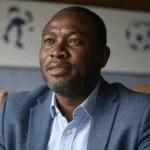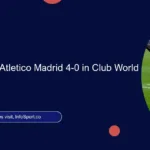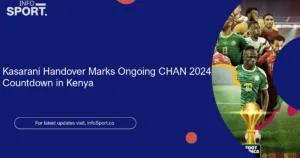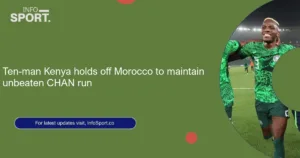Ex-NFF Chief Old Comments Stir Controversy, Says World Cup Is Not Nigeria’s Birthright
Former Nigeria Football Association (NFF) chairman Ibrahim Galadima’s remarks regarding the national team’s eligibility for the World Cup have reignited debate among fans and analysts alike, asserting that qualifying for the World Cup is “not Nigeria’s birthright.” As Nigeria once again faces the reality of missing out on the 2026 FIFA World Cup, this sentiment has become a focal point in discussions on the state of Nigerian football.
Recent Performance Highlights a Deeper Concern
The Super Eagles’ recent performances have been troubling, considering their historical standing in African football. Following a dramatic penalty shootout loss to DR Congo, Nigeria’s failure to qualify marks the second consecutive World Cup absence—for the first time in its history. Notably, the team’s preceding performance during the 2022 qualifiers ended in violence and controversy, with a draw against Ghana leading to their disqualification. The analysis reveals a pattern of underperformance, raising questions about the team’s strategic direction.
Galadima’s Controversial Perspective
Galadima originally made his remarks after a 2006 qualifier against Angola, where he felt Nigerians mistakenly perceived World Cup qualification as guaranteed. His statement has resurfaced as a stark reminder of expectations within Nigerian football: “No country in Africa will just concede the ticket to you because you are Nigeria.” His comments emphasize the need for rigorous preparation and hard work, suggesting that the success of a footballing giant must be earned rather than assumed.
A Shift Needed for Future Success
Football legend Austin “Jay-Jay” Okocha expressed disappointment at the latest failure, emphasizing that while talent exists, a consistent focus and high-level performance across all matches are paramount. This perspective aligns with Galadima’s insistence on hard work. As Nigeria reassesses its strategies, stakeholders must prioritize a cohesive plan that combines talent development with tactical discipline to restore the Super Eagles’ former glory.
In conclusion, the dialogue surrounding Galadima’s controversial comments challenges both fans and administrators to reevaluate expectations and the future of Nigerian football. With the stakes higher than ever, the need for a unified strategy has never been clearer. Engaging with these insights could drive meaningful change in Nigerian football, making the next campaign one of resilience rather than regret.




















